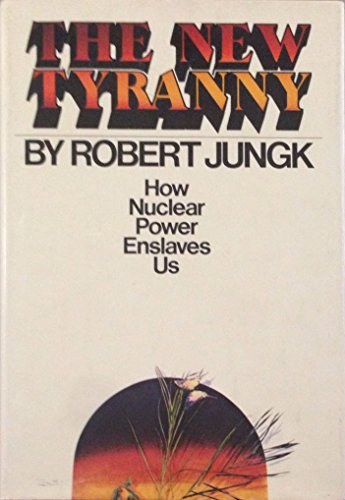Jungk Robert Trans Christopher Trump (1 results)
Product Type
- All Product Types
- Books (1)
- Magazines & Periodicals
- Comics
- Sheet Music
- Art, Prints & Posters
- Photographs
- Maps
-
Manuscripts &
Paper Collectibles
Condition
- All Conditions
- New
- Used
Binding
- All Bindings
- Hardcover
- Softcover
Collectible Attributes
- First Edition
- Signed
- Dust Jacket
- Seller-Supplied Images
- Not Printed On Demand
Seller Location
Seller Rating
-
The New Tyranny: How Nuclear Power Enslaves Us
Published by Fred Jordan Books/Grosset & Dunlop, Inc, New York, 1979
ISBN 10: 0448151618ISBN 13: 9780448151618
Seller: Ground Zero Books, Ltd., Silver Spring, MD, U.S.A.
Book First Edition
Hardcover. Condition: Very good. Dust Jacket Condition: Fair. First Printing. 22 cm. [4], 204 pages. Glossary. Books for Further Reading/Bibliography. Periodicals. Organizations. Nuclear Plants throughout the World. Index. DJ worn, soiled, sticker residue, and edge tears. Pencil erasure residue on fep. Translation of Der Atom-Staat. Robert Jungk (May 11, 1913 - July 14, 1994) was an Austrian writer and journalist who wrote mostly on issues relating to nuclear weapons. He is also well known as the inventor of future workshop which are a method for social innovation, participation by the concerned and visionary future planning "from below". In chapter six of his book The Big Machine, Jungk described CERN as the place to find the "first Planetarians, earth dwellers who no longer feel loyalty to a single nation, a single continent, or a single political creed, but to common knowledge that they advance together." There is an international library in Salzburg called Robert Jungk Bibliothek fur Zukunftsfragen (Robert Jungk Library for Questions about the Future). His book Brighter than a Thousand Suns: A Personal History of the Atomic Scientists was the first published account of the Manhattan Project and the German atomic bomb project, and its first Danish edition included a passage which implied that the project had been purposely dissuaded from developing a weapon by Werner Heisenberg and his associates (a claim strongly contested by Niels Bohr), and lead to a series of questions over a 1941 meeting between Bohr and Heisenberg in Copenhagen, Denmark, which was later the basis for Michael Frayn's 1998 play, Copenhagen. Jungk warns that by following the path of nuclear energy people would be forced to surrender their liberties one step at a time and become part of a regimented society.


